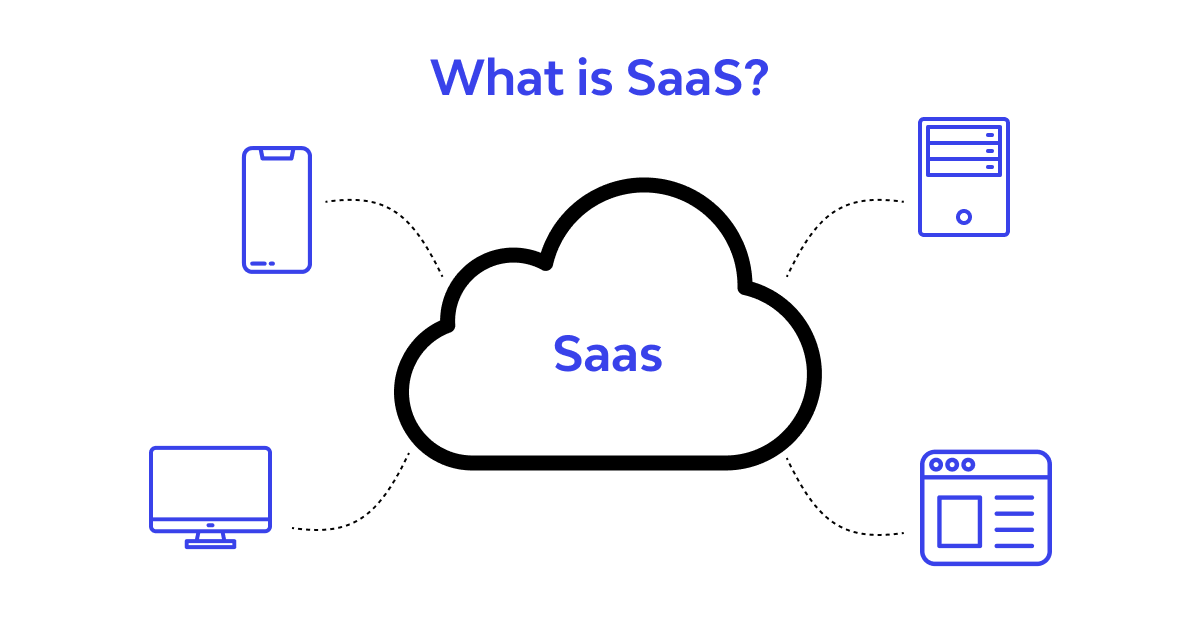Demystifying Software as a Service (SaaS): Your Ultimate Guide
Demystifying Software as a Service (SaaS): Your Ultimate Guide

In the ever-evolving world of technology, new terms and concepts pop up frequently, and one such term that you’ve likely heard quite a bit about is “Software as a Service,” or SaaS. But what exactly is SaaS? How does it work? Is it a game-changer for businesses, or is it just another tech trend? Let’s dive into the world of SaaS, demystify its inner workings, and explore its significance.
What is SaaS?
At its core, Software as a Service, abbreviated as SaaS, is a cloud-based software delivery model. But what does that mean? Imagine traditional software as a tangible product, like a CD you purchase and install on your computer. SaaS, on the other hand, is like streaming a movie online, where you access the software over the internet without the need for physical installation.
How Does SaaS Work?
Now that we know what SaaS is, let’s explore how it works. SaaS applications run on the provider’s server and are accessible through a web browser. Users can access these applications by simply logging into their accounts. The provider takes care of all the technical stuff – maintenance, updates, security, and data storage. This way, you can focus on using the software rather than managing it.
Examples of SaaS
SaaS has become an integral part of our daily lives, both personally and in business. Here are a few examples to help you better understand its diverse applications:
- Google Workspace (formerly G Suite): If you’ve ever used Google Docs, Sheets, or Slides, you’re already familiar with SaaS. These tools are hosted in the cloud and can be accessed from anywhere with an internet connection.
- Salesforce: Businesses use Salesforce for customer relationship management (CRM) to keep track of their interactions with customers. This SaaS solution allows companies to manage their sales, marketing, and customer service efforts efficiently.
- Microsoft 365: Microsoft’s suite of productivity tools, including Word, Excel, and PowerPoint, are available through a SaaS model, ensuring you always have the latest version without manual installations or updates.
- Netflix: Yes, even your favorite streaming service is a form of SaaS. You can watch movies and TV shows anytime, anywhere, without the need to download anything.
Why SaaS Matters?
Now, you might wonder, “Why should I care about SaaS?” Well, SaaS offers several advantages that make it a game-changer in the world of technology and business:
- Accessibility: With SaaS, you can access your software from any device with an internet connection. Say goodbye to being tied down to a single computer.
- Cost-Efficiency: SaaS often follows a subscription-based payment model, which can be more budget-friendly than purchasing expensive software licenses.
- Automatic Updates: Providers take care of updates and maintenance, ensuring you always have the latest features and security patches without lifting a finger.
- Scalability: SaaS solutions can grow with your needs. Whether you’re a small startup or a large corporation, you can tailor your SaaS usage accordingly.
- Collaboration: Many SaaS applications are designed with collaboration in mind, making it easier for teams to work together, regardless of their physical location.
Conclusion
In a world that’s constantly changing, Software as a Service, or SaaS, is here to simplify your life. It’s a cloud-based, user-friendly approach to software that offers accessibility, cost savings, and continuous improvements. Whether you’re a student, a professional, or a business owner, SaaS is a term you’ll want to remember. So, the next time someone asks, “What is SaaS?” you can confidently respond, “It’s the future of software!”
